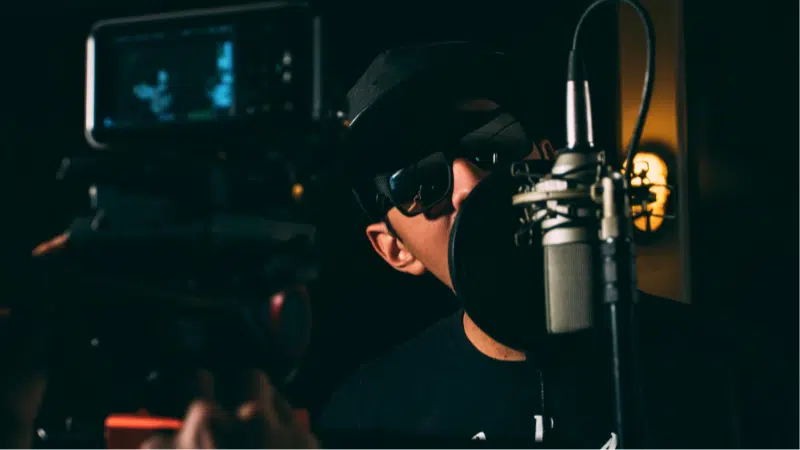Indie labels were once the nucleus of every genre and regional music scene. They were the unifying filter that allowed fans of a particular band or specific style of music to find other bands they liked. Meanwhile, getting signed to the right label was every band’s dream. They were the go-between among artists and distributors, retailers, publicists, radio and brands wanting to use artist’s music. The advent of DIY distribution, starting with Tunecore, kicked open a whole new possibility. Now, artists didn’t need labels to get their music into stores. Now, more than 10 years later, artists can do everything on their own. But as the old adage goes, just because you can, doesn’t mean you should. In 2020, why should an artist consider signing with an indie label? Let’s talk about it.
Why The Right Indie Label Can Make Your Band
Before we dive in, let’s look back in time to why indie labels came about in the first place. When recorded music exploded in the 1920’s, so too did the number of musicians wanting to make records. The problem was that it was prohibitively expensive to record and not just anyone could get records into stores.
Independent distribution had already been established on a regional basis (e.g. one distributor might cover only the Pacific Northwest),and so to have a national record, a label needed multiple distributors. Having a national hit was a massive logistical challenge. At that time, an artist recording and setting up an account with a regional distributor directly was unheard of.
Labels became lightning bolts for artists.
- They funded recording, marketing, radio, and record pressing and handled all of the logistics with distributors, who often didn’t reliably pay them.
- It was tremendously expensive to do all of this, which is in part why the artist got so little of the profits.
- Behind the scenes lever-pulling aside, consumers as well as record stores began filtering the available releases by label, as the unique sound and reliability of that label became trustworthy.
Fast forward through the explosion of blues, soul, and rock and roll in the 1950s and ‘60s…
There were a lot of different, incredible sounds in each genre. Whether it was Sun Records (Elvis, Jerry Lee Lewis, Johnny Cash), Stax (Otis Redding), Chess (Muddy Waters, Howlin Wolf), Dot, Atlantic, or Roulette, each label had a collective culture. They had a group of like-minded artists and a sound that could be counted on.
The labels who did it right created their own sound – not just a genre but unique sonic elements of recording techniques – developing regional scenes and musical families that inspired artists to move across the country or even the world to be in that scene. Labels and their studios encapsulated a city or a region. Stax was Memphis. Atlantic was New York. Chess was Chicago. Motown was Detroit. The sounds from those labels were the product of their city’s musical fabric, the political tone, the available studios, radio station wattage, the records that were making their way there. And those labels couldn’t have been created in any other city. The 50’s and ‘60s were the first true golden age of independent music.
——
Sharpen your skills:
How Traditional Physical Distribution and Retail Work
How to Trademark Your Artist Name
——
Fast-forward again to the 1970s, 1980s and ‘90s…
This is when the cost of recording equipment went way down. This was the beginning of what we now refer to as “DIY.” Bands made their own 7” records and consigned them with local record stores along their self-booked tour routing. Indie labels started doing direct-to-fan mail order. This was the beginning of the modern age.
The “50/50” deal began emerging out of the vibrant American punk-rock scene.
Labels put up all the money and after the expenses were recouped, they split the profits in half with the bands. Being on the right label meant everything. Each label had a massive mailing list, dedicated fans, mail order catalogs, the works. Bands on the same labels toured together, exchanged shows, crashed on each others couches and intermingled musically.
New indie labels defined their scene. Kill Rock Stars was Olympia, WA and Riot Girl. Sub-Pop was Seattle and grunge. New York had Def Jam and early hip-hop, Blue Note defined jazz. Los Angeles had dozens of prominent labels. Asylum defined the Laurel Canyon folk/roots scene. Later, Stones Throw reinvented LA hip-hop with infusions of funk and the experimentations of Madlib. These labels couldn’t have come out of any other city.
Fast-forward to 2000. — Napster ass-flipped the CD business.
MP3s were a thing. iPods were invented. Everyone was panicking that the value of music had completely dropped out. Recording sessions were cheap AF (we thought back then)! A band could make a demo for a couple grand. Digital distributors emerged, servicing digital stores like MP3.com.
And finally, in 2003, Apple saved the entire fucking music business with the iTunes store.
Besides making it much easier to buy music legally, the silent heroism of iTunes was that Apple paid distributors and accounted to them with digital statements, making it easy to account to labels. Indie labels flourished, now having 3 active formats to sell (CDs, vinyl, and MP3s). Thousands upon thousands of indie labels emerged.
And here’s where the second wave DIY movement began…
A digital distributor called Tunecore launched, ironically founded by a former label owner, allowing bands to deliver to iTunes directly for a flat fee per release. This not only ballooned the amount of independent artists, it also created a lane for artists who couldn’t find a label, or were disenfranchised by some labels’ lack of “skin in the game” monetarily, while still keeping 50% of the profits. Should a band be able to afford a publicist and have someone in the band capable of managing a team, a well organized group could potentially do a great job of developing themselves, keeping 100% of the profits. It changed the music business.
However, it also created entirely new problems that are only now becoming clear.
What went wrong?
- A “Fuck Labels” movement emerged, which unfairly conflated valuable indie labels with major labels, as well as the crappy and draconian indie ones. And confused artists terribly.
- It flooded the market with tons of bad music, soundalikes, and re-records, making it harder to find the good stuff.
- Removed the filtering mechanism of trusting X Records to be a consumer’s source for X kind of music
- Doubled the work of music managers, who were already doing a ton.
- Created all new, way-too-powerful gatekeepers, who don’t inherently care about music: tech companies, who don’t differentiate between forms of media. Music, podcasts, TV shows, news – it’s all just content to them. Many great people work at these firms who do love music, but they are public companies who would ditch music in a heartbeat if some other form of media became more profitable and cheaper to store.
- Finally, and paradoxically, it reduced the amount of music nerds deciding to start indie labels…because…who wants to sink their life savings and 17 hour days into doing something that no one appreciates anymore?
So, here we are in 2020…
Artists who are really serious about their craft, but aren’t interested in spending time marketing, negotiating deals, analyzing distribution statements or managing teams of promo people, find themselves with a dilemma.
“Am I wrong to give up some element of control and a percentage of my potential profits in exchange for help?” The answer is… it depends.
How to know if signing to an indie label is the right choice for you:
Reasons you SHOULD consider finding a label:
- You’re making music that squarely falls into an established micro-genre: Alt-Country, Retro soul, dembow, lofi hip-hop, metal, classic jazz, indie rock, etc.
- The kind of music you make isn’t at all popular where you live, but is super popular in a region where there are labels who put out music like yours.
- You’re someone who prefers to focus 99% of your time on creative, or, are willing to admit you’re not someone whose skillset is organized around business and marketing.
- You started out on your own, have seen positive traction, but are hitting a ceiling of what you can do without help from a team.
- Your career is starting to take off. (you’re filling rooms, you’re streaming tens of thousands on every track and have absolutely no access to money to fan the flames)
Reasons you should DO IT ON YOUR OWN:
- You’ve got a highly capable manager who is really good at marketing.
- You’re great at, and interested in, dedicating the time to marketing your music.
- You are making super unique music that doesn’t fit with any labels of note.
- You’re satisfied with what you’re accomplishing on your own.
It’s up to you to decide what’s right for you.


